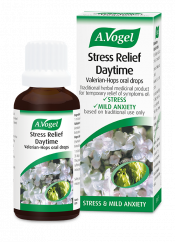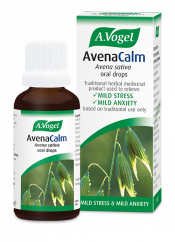How do I de-stress my life?
To help keep stress under control, this blog will look at how to manage the problem in various scenarios, such as:
- In the morning
- Working from home
- Presentations, meetings and interviews
- About the house
- When your schedule is busy
- At bedtime
- Plus, going forward.
In the am.
Let's start implementing some stress-busting tactics from the moment your alarm goes off in the am! So, what's my first piece of advice? It's simple – get up slowly!
Rather than jumping out of bed the moment your alarm goes off, take a few minutes to gather yourself (some of us will find this much easier than others!). This tactic just gives the body and mind the opportunity to switch out of the sleepy, dream-like stage and adapt to wakefulness. It also gives you a few minutes to think and plan for the day ahead, rather than diving straight into it. Hopefully, the result is a calmer, less sleepy, you!
If you have time, aim to get a little fresh air in the morning. Walk in the garden, water the plants or simply open a window and take a few moments to stare wistfully outside. The outdoor air is refreshing whilst sunlight itself elicits melatonin production, which is energising and helps to boost mood.
Next, set your day up with a short meditation. You haven't got time, yes, I hear you! This is a common complaint in the mornings but did you know that meditation can take as little as 1 minute? I defy anyone to have trouble scheduling that into their timetable! You can even do it in the shower and tick two tasks off at once! Apps are readily available to help you get started.
Meditation is very calming and sets aside some time for yourself before the chaos of the day begins so I would really recommend trying it out.
Then finally, make routine. Knowing what's ahead and what tasks you have to complete in the morning and throughout the rest of the day just helps us to feel more reassured and in control.

Working from home
2020 has seen a rise in home working but many of us don't have the setup or routine to control stress and maintain productivity.
So, if you are a homeworker, set aside a specific space for your work to separate the living and working area. You may feel more productive and less distracted knowing that the desk in the corner of your living room is 'work' and home is everywhere else.
If your new workspace is still feeling less than motivating, take a leaf out of Lego HQ's book! To encourage workers, they write motivational messages in their offices using Lego pieces, as shown in a recent channel 4 documentary, How to Beat Stress. You could do the same with some post-it notes!
Next, during your working day don't try to multi-task. Whilst working from home it's so easy to slip on a load of washing in your breaks but this can leave us feeling a little overwhelmed. Instead, take some time for yourself during your breaks and give your mind a proper rest.
Also, to keep a hold on stress, take breaks for yourself rather than spending the time doing things for other people. Take a walk. Try Yoga with Adrienne on YouTube. Maybe just sit and enjoy a biscuit. Whatever makes you feel relaxed.
And you might have heard this one before, but there's no harm in having a reminder. Make sure you give yourself a proper morning routine when working from home, rather than jumping immediately from your bed to the 'office'. Get washed and dressed. Wear comfy work clothes, if you like. Take time for a nutritious breakfast, rather than eating it hunched over your desk. All of this just helps towards a calmer and more productive day.
Presentations, interviews and meetings
If the thought of doing a presentation, meeting or interview heightens your stress levels, a good tip is to be as prepared as possible for the event. Yes, you will no doubt have a super-duper PowerPoint and your suit will be on-point, but it can also help to think about how you are going to introduce yourself to the room. So, have a topic of conversation to hand to help avoid awkward silences or the panic of meeting new people - the weather is a go-to topic!
We can also get stressed during presentations thinking about how we look. To avoid this, and to prevent yourself from fidgeting, take a moment before you enter to look at yourself in a mirror. Maybe check there's no spinach in your teeth, or that there's no slither of yogurt down your cardigan. Once you've given yourself the ok, you can head into the presentation confident that no one will find either of these things!
And lastly, be kind and encouraging to yourself. Go in prepared and you can remind yourself that you've done everything you can – that you've got this!
My Top Tip:

If you are dealing with a stressful situation, it may be an idea to have a herbal remedy handy.
"The product calms me. It worked great for studying."

About the house
If things around the house are stressing you out, then this section of the blog is most definitely for you!
It sounds simple but, to prevent household tasks from becoming overwhelming, a good motto is to put things away as you go, not down. If you (and everyone else at home) does this, it avoids creating a big 'to do' list for later in the week.
An organised living area has lots of benefits to our wellbeing. There are fewer distractions so it's easier to work. It can also bring a sense of calm and avoids a list of things to do haunting your every moment.
If you have any spare time, clearing your cupboard or junk drawers (we all have them!) is a good idea. Research shows people feel tend to have less anxiety when they feel they have control and this is just one small area around the home that you can get a grip on.
A busy schedule
If your workload is simply overwhelming, it can actually help to avoid 'to do' lists altogether (surprising, I know). Instead, schedule the tasks straight into your calendar at a specific time and for a specific duration. This way you'll be less likely to put them off or replace them with other tasks.
There's also research to say that we are more alert and productive in the morning so, if you get a spare minute, get tasks out the way in the morning before getting on with the rest of the day.3 But remember, if things don't get done, remain positive.
There's always tomorrow – simply focus on what you have achieved instead.
Lastly, think ahead. If someone proposes an activity or meet-up, imagine yourself doing it in a few days' time. How does that make you feel? Excited? Stressed? Anxious? If you can't see yourself doing something straight away, it may be better to turn down the offer altogether to avoid getting stressed over it in the future.
Bed time
Even a slight loss of sleep has been found to have a negative impact on our ability to feel positive emotions so this is definitely another area we should focus on in the battle against stress, as well as anxiety and low mood.4
If stressful thoughts are disrupting your ability to drift off to sleep, keep a notebook beside your bed so that you can write down and release some of these issues.
You could also try a spot of meditation. There are special apps and playlists on Spotify that focus specifically on bedtime meditation.
My Self-Care Tip: Keep cool to help sleep
Watch my video below for a simple tip on how to improve sleep!
Going forward
All too often when we are stressed, we get caught up in the here and now but it might be beneficial to change your perspective and look ahead instead.
For example, if you have anxieties around spending, eating or even doing particular activities, consider how it will affect a future version of you. Are you making good choices, or are you doing them to satisfy yourself or someone else in the here and now? Take a moment to think about this and it may just change your outlook.
And lastly, going forward, take time for the things you enjoy. Is it exercise? A bit of arts and crafts? Maybe a nice home-cooked meal? These are all de-stressing activities and, if it's something you enjoy, it's a good way to lift your mood too.
References
1 https://www.forthwithlife.co.uk/blog/great-britain-and-stress/
2 https://www.independent.co.uk/news/uk/home-news/british-adults-stress-anxiety-excited-social-professional-situations-poll-a9675876.html
3 https://www.nature.com/articles/s41467-018-08259-7
4 https://academic.oup.com/sleep/advance-article/doi/10.1093/sleep/zsaa078/5822126








